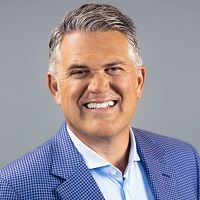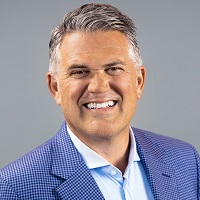Apple TV+'s 'Loot' Offers Five Lessons for Inheriting Wealth
Season two just ended, and main character Molly (played by Maya Rudolph) has shown us multiple ways that new heirs should and should not be like her.


Profit and prosper with the best of Kiplinger's advice on investing, taxes, retirement, personal finance and much more. Delivered daily. Enter your email in the box and click Sign Me Up.
You are now subscribed
Your newsletter sign-up was successful
Want to add more newsletters?

Delivered daily
Kiplinger Today
Profit and prosper with the best of Kiplinger's advice on investing, taxes, retirement, personal finance and much more delivered daily. Smart money moves start here.

Sent five days a week
Kiplinger A Step Ahead
Get practical help to make better financial decisions in your everyday life, from spending to savings on top deals.

Delivered daily
Kiplinger Closing Bell
Get today's biggest financial and investing headlines delivered to your inbox every day the U.S. stock market is open.

Sent twice a week
Kiplinger Adviser Intel
Financial pros across the country share best practices and fresh tactics to preserve and grow your wealth.

Delivered weekly
Kiplinger Tax Tips
Trim your federal and state tax bills with practical tax-planning and tax-cutting strategies.

Sent twice a week
Kiplinger Retirement Tips
Your twice-a-week guide to planning and enjoying a financially secure and richly rewarding retirement

Sent bimonthly.
Kiplinger Adviser Angle
Insights for advisers, wealth managers and other financial professionals.

Sent twice a week
Kiplinger Investing Weekly
Your twice-a-week roundup of promising stocks, funds, companies and industries you should consider, ones you should avoid, and why.

Sent weekly for six weeks
Kiplinger Invest for Retirement
Your step-by-step six-part series on how to invest for retirement, from devising a successful strategy to exactly which investments to choose.
In the Apple TV+ show Loot, a 45-year-old woman named Molly (played by Maya Rudolph) becomes the third-wealthiest woman in the world after divorcing her tech billionaire husband. Now in its second season, the show follows her life as she takes charge of her neglected foundation and embarks on a soul-searching journey as a newly single woman and philanthropist.
Fully entertaining and often endearing, Loot offers many real-life lessons about what to avoid when inheriting wealth. If you are coming into a large sum of money or know someone who is, below are five tips on how to successfully navigate this period and end up on top.
(Warning: Spoilers for seasons one and two of Loot below.)
From just $107.88 $24.99 for Kiplinger Personal Finance
Become a smarter, better informed investor. Subscribe from just $107.88 $24.99, plus get up to 4 Special Issues

Sign up for Kiplinger’s Free Newsletters
Profit and prosper with the best of expert advice on investing, taxes, retirement, personal finance and more - straight to your e-mail.
Profit and prosper with the best of expert advice - straight to your e-mail.
Tip #1: Don’t splurge on big-ticket items right away.
In season one, Molly takes her colleagues across the country on her private jet, which turns out to be a bad idea for many reasons. For newly high-net-worth individuals, it can feel tempting to spend your inherited money right away. Big-ticket items like a larger primary residence, vacation home, luxury car or international trip are now at your fingertips. Similar to how individuals who win the lottery feel, the urge to splurge or use the money to make a big life decision like quitting a job can be overwhelming.
Instead, take a step back. The money isn’t going anywhere. Consider what your needs and values are and how more money can help bring balance to each. Indeed, before doing anything, pay attention to the next tip.
Tip #2: Put together a plan for your money.
At the end of the first season, Molly admirably announces she’s giving away all her funds, but she has no idea how to go about it. Having a plan is essential. Before making any big decisions, it’s important to come up with a mission statement and map out exactly how your funds will support any benefactors, the rate at which you will give and which organizations you will be giving to.
Philanthropic contributions can be made a number of ways, including cash, through appreciated stocks, donor-advised funds, community or family foundations or qualified charitable distributions (QCDs) from an IRA. Depending on which avenue you chose, donors are also privy to benefits including the reduction or elimination of capital gains taxes on their gift.
However, before you set your gifting plan in motion, this is a good time to assess your current levels of good and bad debt (mortgages, college loans or credit card debt, to name a few). As the old saying goes, pay yourself first and then ensure you are proceeding with both care and intention.
Tip #3: Surround yourself with a team of professionals.
It goes without saying that you’ll need a great team beside you. Molly is lucky enough to have quirky colleagues who are passionate about giving, supported by Arthur, her accountant, who serve as her allies.
Curiously, the audience has yet to see Molly meeting with her financial adviser. Don’t be like Molly. Having a strong relationship with an adviser is one of the best decisions any individual who has serious financial goals should make. Indeed, advisers are critical to ensuring that financial plans are executed appropriately and that individuals are getting the best bang for their buck.
Tip #4: Do your research.
In the first episode of season two, Molly and her team are about to give their money to a well-known philanthropist, only to find out at the eleventh hour that he’s actually running a Ponzi scheme.
While you may have never been personally subjected to this misfortune, don’t assume that there aren’t nefarious actors trying to swindle you and others out of your money. Refuse to place your trust in any person or entity without doing your research. Alongside your team, conduct the proper due diligence and ensure that you’re giving to a reputable organization where your funds will go to good use and as originally intended.
Tip #5: Be authentic.
There are many moments throughout the first season when Molly gets in trouble for something she says. While she means well, it’s clear that she doesn’t always understand the people she’s trying to help and the issues she’s trying to solve.
Even in adulthood, we are still growing and learning. With your newfound wealth, it’s important to remain authentic in your giving efforts and support for causes that you truly care about.
Inheriting wealth can come with both big perks and big responsibilities. Regardless of your family situation, be sure to properly identify who your funds are going to and have ongoing conversations with whoever you identify to ensure a seamless experience. Throughout the process, take your time, be yourself, create a plan and find a team of professionals who can help you forge your individual path.
Regardless of how you pursue your new life as an heir or heiress, there are numerous ways to remain family-oriented, philanthropic and strategic in a way that provides high impact and keeps your values intact.
ALINE Wealth is a group of investment professionals registered with Hightower Securities, LLC, member FINRA and SIPC, and with Hightower Advisors, LLC, a registered investment advisor with the SEC. Securities are offered through Hightower Securities, LLC; advisory services are offered through Hightower Advisors, LLC.
Third-party links and references are provided solely to share social, cultural and educational information. Any reference in this post to any person, or organization, or activities, products, or services related to such person or organization, or any linkages from this post to the web site of another party, do not constitute or imply the endorsement, recommendation, or favoring of ALINE Wealth or Hightower Advisors, LLC, or any of its affiliates, employees or contractors acting on their behalf. Hightower Advisors, LLC, do not guarantee the accuracy or safety of any linked site.
Related Content
- Worried Your Heirs Will Blow Their Inheritance? Make a Plan
- Leaving Property to Multiple Heirs? What to Consider
- All About Designating Beneficiaries in Estate Planning
- The Do’s and Don’ts of Inherited IRAs
- Three Reasons I’m Bullish on Water, and You Should Be, Too
Profit and prosper with the best of Kiplinger's advice on investing, taxes, retirement, personal finance and much more. Delivered daily. Enter your email in the box and click Sign Me Up.

Peter J. Klein, CFA®, CAP®, CSRIC®, CRPS®, is the Chief Investment Officer and Founder of ALINE Wealth, a wealth management firm that specializes in providing clients with financial planning advice for every stage of their lives. Along with Peter’s deep financial wisdom, he adds considerable acumen in philanthropy, helping clients navigate family trusts, institutions, and nonprofits.
-
 Ask the Tax Editor: Federal Income Tax Deductions
Ask the Tax Editor: Federal Income Tax DeductionsAsk the Editor In this week's Ask the Editor Q&A, Joy Taylor answers questions on federal income tax deductions
-
 States With No-Fault Car Insurance Laws (and How No-Fault Car Insurance Works)
States With No-Fault Car Insurance Laws (and How No-Fault Car Insurance Works)A breakdown of the confusing rules around no-fault car insurance in every state where it exists.
-
 Why Picking a Retirement Age Feels Impossible (and How to Finally Decide)
Why Picking a Retirement Age Feels Impossible (and How to Finally Decide)Struggling with picking a date? Experts explain how to get out of your head and retire on your own terms.
-
 For the 2% Club, the Guardrails Approach and the 4% Rule Do Not Work: Here's What Works Instead
For the 2% Club, the Guardrails Approach and the 4% Rule Do Not Work: Here's What Works InsteadFor retirees with a pension, traditional withdrawal rules could be too restrictive. You need a tailored income plan that is much more flexible and realistic.
-
 Retiring Next Year? Now Is the Time to Start Designing What Your Retirement Will Look Like
Retiring Next Year? Now Is the Time to Start Designing What Your Retirement Will Look LikeThis is when you should be shifting your focus from growing your portfolio to designing an income and tax strategy that aligns your resources with your purpose.
-
 I'm a Financial Planner: This Layered Approach for Your Retirement Money Can Help Lower Your Stress
I'm a Financial Planner: This Layered Approach for Your Retirement Money Can Help Lower Your StressTo be confident about retirement, consider building a safety net by dividing assets into distinct layers and establishing a regular review process. Here's how.
-
 The 4 Estate Planning Documents Every High-Net-Worth Family Needs (Not Just a Will)
The 4 Estate Planning Documents Every High-Net-Worth Family Needs (Not Just a Will)The key to successful estate planning for HNW families isn't just drafting these four documents, but ensuring they're current and immediately accessible.
-
 Love and Legacy: What Couples Rarely Talk About (But Should)
Love and Legacy: What Couples Rarely Talk About (But Should)Couples who talk openly about finances, including estate planning, are more likely to head into retirement joyfully. How can you get the conversation going?
-
 How to Get the Fair Value for Your Shares When You Are in the Minority Vote on a Sale of Substantially All Corporate Assets
How to Get the Fair Value for Your Shares When You Are in the Minority Vote on a Sale of Substantially All Corporate AssetsWhen a sale of substantially all corporate assets is approved by majority vote, shareholders on the losing side of the vote should understand their rights.
-
 How to Add a Pet Trust to Your Estate Plan: Don't Leave Your Best Friend to Chance
How to Add a Pet Trust to Your Estate Plan: Don't Leave Your Best Friend to ChanceAdding a pet trust to your estate plan can ensure your pets are properly looked after when you're no longer able to care for them. This is how to go about it.
-
 Want to Avoid Leaving Chaos in Your Wake? Don't Leave Behind an Outdated Estate Plan
Want to Avoid Leaving Chaos in Your Wake? Don't Leave Behind an Outdated Estate PlanAn outdated or incomplete estate plan could cause confusion for those handling your affairs at a difficult time. This guide highlights what to update and when.